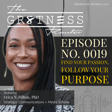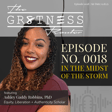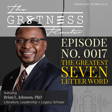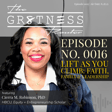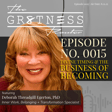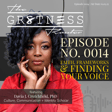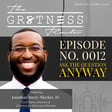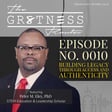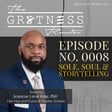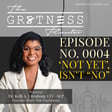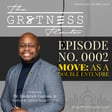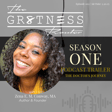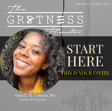
Episode No. 0006: Pivot, Purpose & The Power of Knowing Yourself
What happens when the plan you had for your life no longer fits?
In this episode of The Greatness Router, I sit down with Dr. Joseph N. Cooper, a leading scholar in sport leadership, education, race, and culture. We talk about pivoting with purpose, embracing identity shifts, and why challenges aren’t always obstacles—they’re sometimes invitations.
From post-athletic career identity crisis to becoming a powerhouse in academia, Dr. Cooper shares the pivotal moments that shaped his journey. We unpack:
🔹 The unexpected push that forced him into his true calling
🔹 Why “Not Every Challenge is a Setback—Some Are Transformational”
🔹 The power of learning yourself and why self-acceptance is the ultimate game-changer
🔹 How faith, obedience, and discomfort often lead to the biggest breakthroughs
This episode will challenge you to rethink how you handle setbacks, embrace growth, and walk boldly in your purpose.
🎧 Tune in now! #TheGreatnessRouter #KnowYourself #PivotWithPurpose
Email: josephn.cooper@umb.edu
LinkedIn: Joseph Cooper
